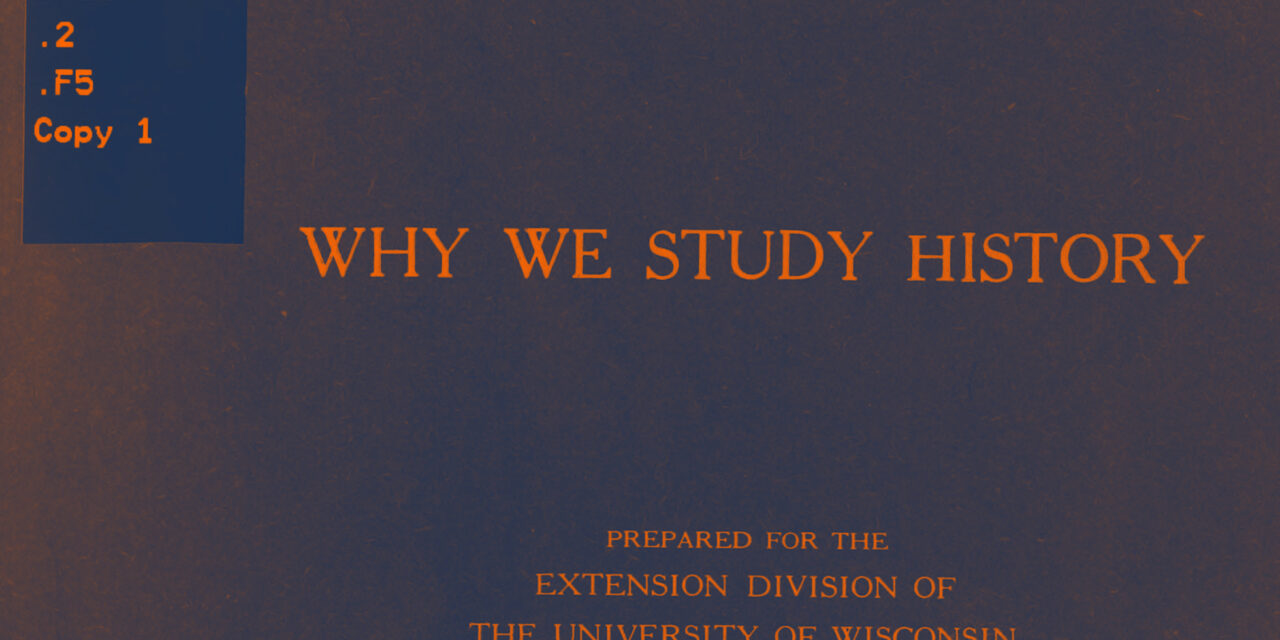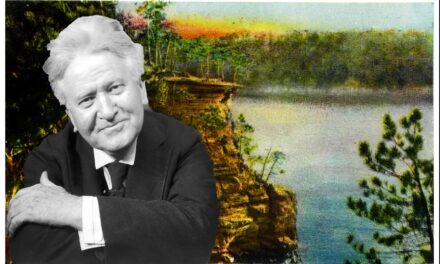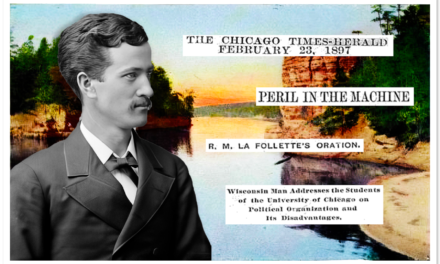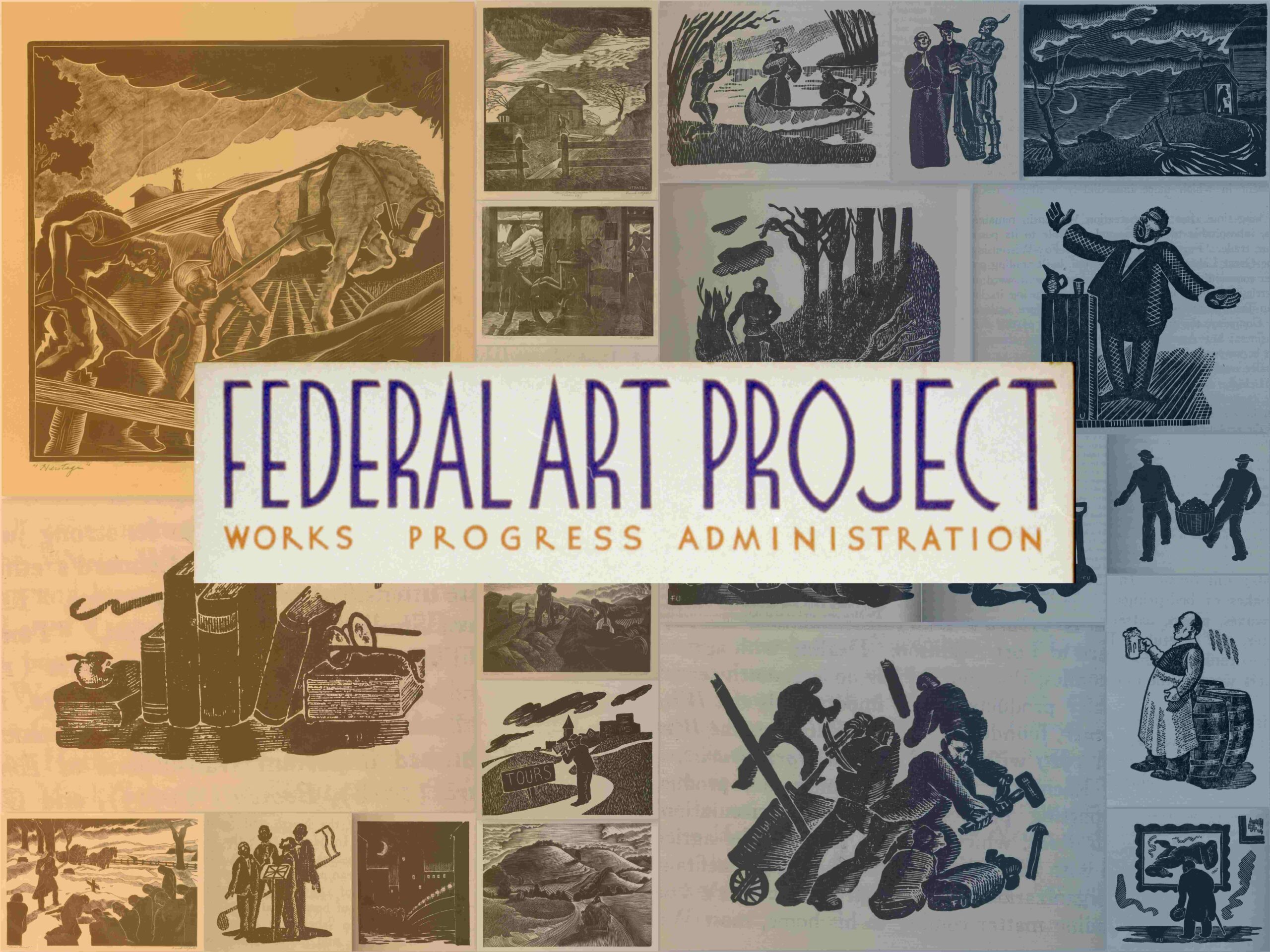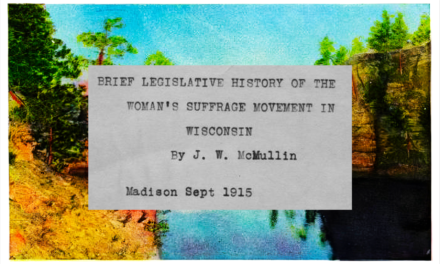Prepared for the Extension Division of the University of Wisconsin,
By Carl Russell Fish, Ph.D. Professor of American History, 1921
In these days when so many students in schools and colleges are studying history, how many ask themselves why they are doing it? If one tried the experiment of asking such a question, a great many would undoubtedly reply that they were doing it because it was the thing to do. Others would say that they were studying it in order that they might later teach it. Some few would admit that they liked the stories they learned.
A generation ago, however, it was scarcely true that to study history was the thing to do. It received very little attention in school and college, and was hardly considered a dignified study. Of course this meant that there were not many positions for teachers of history and that reason for studying it did not then exist. Moreover, the men who have given history its present position have not as a rule been good story tellers.
What is the reason, then, for this change in the position which history enjoys in the educational system and in the opinion of the public?
Many arguments have been used to emphasize the importance of history. For instance, that it gives the individual many facts which will be useful in later life. This argument has been greatly exaggerated. History does not repeat itself, and the application of historical facts to present-day life is not at all easy, and is sometimes dangerous. Moreover, most people forget the facts they learn in their college courses in history, and on the whole it is a good thing that they do.
Another argument which is used very much at the present time is that history inculcates patriotism. This is at least a very difficult aim to give it, because if history is truthfully taught one finds that one’s country has at times been in the wrong, and if it is so taught as to make one’s country always right it is not truthful. Moreover, if history is taught with this aim, the tendency will be to make the teaching of the history of other countries a constant comparison in which all the advantage will be given to one’s native land, and thus national animosities, or at least dislikes, will be encouraged.
Still another argument that has been urged in its favor is that it teaches morality, but here again the same difficulties occur. What seems to us right does not always triumph; and will it encourage morality to teach that at times the wicked are triumphant?
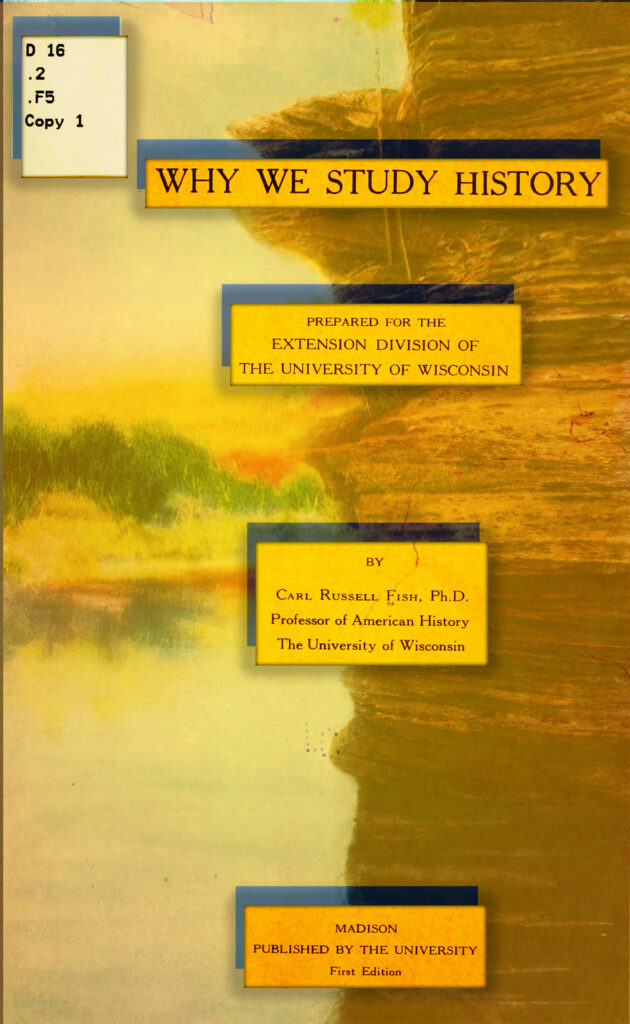
What Is History?
The simplest way of answering this question as to why we should study history is by considering what history is. And to this question again many answers have been given, all containing some element of truth: as, that history is the science of origins; or that it is past politics; or, looking at it from another point of view, that it is a serious pastime.
The most comprehensive and at the same time the most significant definition seems to be that history is the experience of the human race, and that recorded history is the memory of the human race. Its value, therefore, is of exactly the same character as the value of experience and memory for the individual.
If we think for a moment what life would be worth without the memory, we can get some idea of what civilization today would be worth without history and a knowledge of history. What would friendship mean without memory of past struggles in common? What would home mean without recollections of the common family life? What would one’s home town mean without a memory of the life one had lived there. It is precisely in this way that history contributes to make one at home in the world, and a person with a knowledge of history has quite the same advantage in proving himself to be a useful citizen as the man of experience has in any community.
John Selden put the matter very exactly centuries ago when he said: “The neglect, or only vulgar regard, of the fruitful and precious part of it (antiquity) which gives necessary light to the present in matters of state, law, history, and the understanding of good authors—is but preferring that kind of ignorance which our life alone allows us, before the many ages of former experience and observation which may so accumulate years to us as if we had lived even from the beginning of time.”
That is exactly it. We study history, for the purpose of putting old heads on young shoulders.
Let us illustrate how this conception of history bears on the suggestion that history teaches patriotism and morality. No one loves his brother or his chum because he has always been right or because one has never quarreled with him, but because through many disagreements and through many quarrels one has become intimate with his real underlying character and has found it good. So, in the same way, if we live through the past of our country it is not necessary that we find it always right, but that we come out with a feeling of common experience and common aim toward good things.
In the same way with morality: The right has not always won. It never will always win. But we do find that one side seldom has all the right or all the wrong, that one side seldom wins entirely; that no conscious effort is lost. We find that in human experience the same law applies as in natural science—that all energy is conserved; that all deeds, good and bad, have their consequences for the indefinite future. Can there be any greater incentive to right conduct than an increasing knowledge that our conduct, right or wrong, will influence the future indefinitely?
One valid argument for the study of history is that it is necessary if we are to understand the world we live in, if we are to understand ourselves. The world of the present moment is not independent of the past; it cannot act exactly as it wishes. Neither can we separate ourselves entirely from the past. It is just as dangerous not to know about history as it is not to know about electricity. In order to understand conditions today we must understand the meaning of forces round about us—the forces of physics, the forces of chemistry, and the subtle forces coming from the past experience of mankind.
Historical Method.
There is still another fundamental argument for the study of history, which is so important that many writers take no other into account. History, from one point of view, is the experience of the human race; from
another point of view it appears that history is the recorded experience of the human race. But from still a third point of view it may be said that history is a method of recalling the past, just as geology is a method of studying the physical past of the earth. No one should study history simply as a record, but should always make some personal effort to recover some past human experience and to record it for the benefit of others. A mastery of this historical method is thus one of the great advantages which one should expect from the study of history.
Historical method simply means a method of ascertaining truth. It is in many respects exactly like the method of discovering truth in any other line, such as in any one of the natural sciences. But it differs from the natural sciences in one important particular. In history the evidence is based on human beings. Whether it be written or traditional or oral, there is always some human element; and human nature has always been alike in this at least, that it never records absolutely accurately. History, then, can never be as exact as one of the natural sciences. On the other hand, if one acquires aptness in using the historical method it is of extraordinary utility in everyday life, for precisely the same methods are necessary to ascertain whether a seventeenth-century letter writer or an ancient Roman lawmaker is telling the truth as are necessary for sizing up a proposal made by an insurance agent or an application for a position. Historical method, then, is the best combination of scientific training and everyday utility that is afforded by any of the standard academic courses. An expert historian can get the truth even out of a modern newspaper.
The great historian Gibbon writes in his autobiography: “In the infancy of my reason I turned over, as an idle amusement, the most serious and important treatise; in its maturity, the most trifling performance would exercise my taste or judgment; and more than once I have been led by a novel into a deep and instructive train of thinking.” This represents the aim of the student of history, but until one has reached maturity, one should be careful of one’s diet. The student should begin with two kinds of material. First, come the sources themselves: the first-hand reports of the witnesses of events; journals and debates of legislative bodies, letters, diaries, laws, reports, speeches, and all the varied forms in which first-hand evidence is recorded. We use sources not because they are free from error and contain all the truth, they are full of prejudices and of the omissions resulting from imperfect observation. They are, however, the raw material of all history, and the only way of ascertaining the truth is by studying them, comparing them, putting ourselves in the places of the writers, and winning the truth by patient skill in handling the fallible evidence of human beings. We should remember that a great deal of what we ordinarily read is source material: most of the books we read in foreign language courses, speeches of candidates for office, party platforms, many books of adventure. In studying any period of history it is absolutely essential toward an understanding of the spirit of the age, to read sources; and nothing is more fascinating.
Next the student should read the works of competent historians who have studied these sources, winnowed from them the wheat from the chaff, and worked the whole into a narrative bound together by cause and effect. The object of this kind of reading is twofold; first, to discover what the truth is, and second, to find out how the truth is ascertained from the sources. One should, therefore, be careful to use the work only of the most competent men. This means in most cases the more modern books, generally, in the case of books in English, those of the last twenty-five or thirty years. The later are to be preferred; for historical method has improved of late years even more than the methods of the natural sciences, and the body of truth has been enormously increased.
After becoming thus familiar with the material out of which history is made, and having acquired good habits of separating the true from the false by association with those who have put good habits into practice, one should extend one’s range. There are many great men of the past who have written history—not so carefully and efficiently as the moderns but with greater intellectual power. Every student should acquire some familiarity with the great interpreters of history—Thucydides, Tacitus, Gibbon, Ranke, Motley, and others. He should not be interested in the fact alone, but even more should he be interested in the meaning of facts.
The result of historical training should be to enable one to read anything without being misled, and to find increasingly, as Gibbon did, that almost everything will contribute something toward a knowledge of the past, and toward an understanding of the present.
Point of Attack
“Human experience” is a pretty broad term. If one wishes to arrive anywhere in studying it, one must have some point of attack or one simply beats the air. On the other hand, one must not too consistently study history from any single point of view. Experience is not simple; history is not simple; life is not simple. In trying to make history too simple one is in danger of losing all of its value. There is no one exclusive method of getting at history, any more than there is one pink pill which will cure all bodily infirmities.
In order fully to perceive the truth of history it must be viewed from many different aspects. Some persons have tried to present history from the point of view of geography. It is true that the conditions of the country do explain part of the experiences human beings have had in a particular locality. They fill up one segment of the complete circle of possibilities; but they leave a large portion of the circle unexplained.
Others have emphasized—many have overemphasized—the economic life which has grown up on the basis of this geography. If we know the geography and the economic life, we have filled in two large segments, but we still leave much of the circle unexplained. Neither of these can be neglected, but neither of them is entirely comprehensive. All of these forces, geography, economic life, and all other forces, such as heredity and social conditions, have to pass through individuals before they take form in action. The individual, consequently, sums up all these forces and fills in the circle representing complete human experience.
One cannot, however, study all individuals. For practical purposes one can profitably select or study at most times and in most countries those individuals who were selected in each time and place to represent the community—that is, those who dominated what we call the politics and thought of the time. In a way, then, the selection of politics as the best point of attack on the past may be justified. Politics represent the conflict of individuals, and in order to understand the individual it is necessary to bring in the economic, the geographic, and the social forces which made them what they were.
Topical or Chronological Method.
To ascertain the truth about the past is a scientific study; to present the truth is an art. Consequently, there is indefinite freedom for the individual to select his own methods and to adapt them to the particular subject with which he is dealing and to the people whom he is to address. It is sometimes advantageous to present events as they occurred, one after another, but many times this is very confusing and involves endless repetition. In such cases it is better to select one topic after another and to run them through a considerable period. One of the best illustrations of the overemphasis on the chronological method is in the study of United States history, where so many historians give the history of successive presidential administrations, in each case repeating much of what went before. There has been, therefore, of late a greater tendency to select topics.
On the other hand, every science must be subject to its own peculiar spirit, and the very breath of history is that it occurs in time. The time element is always important, and the topical method must never be carried so far that the sense of continuity and the sense of development are lost. One of the greatest benefits of history is to get a sense of poise, of cause and effect, of continuity, of the relation of the present to the past, and, consequently, to the future. Whether the human race progresses or not may be a question, but there is no question that it develops, each generation growing out of the past with changes that are produced by a continuing evolution.
Period.
At the present time there is a great effort being made to study all history. It would be very desirable, if it could be done, to give the present generation a comprehensive understanding of the total progress of mankind. This, however, is extremely difficult because we know so much about the past that no one human mind can ever contain it. Moreover, the development of history has not been one, but has been indefinitely subdivided, different lines of development often having little relation to each other; and the problem of presenting them all together and at the same time leaving any definite impression on the mind is beyond the artistic capacities, as well as the time capacity, of the race. History, then, must be studied by periods and by areas such as countries.
Such periods should be long enough to give some idea of development. In this respect few subjects offer the advantages that English history does, where a period of obviously connected events runs so far and with so little break and so independently into the past.
Every student of history, however, should at some time study some particular period which is short enough for him to know intensively; for no one can get the full benefit of history without having lived in some part of the past, without knowing the men and their problems well enough to understand and sympathize with them and to feel the difficulties which they felt as they sat together at the council table. If one passes through experiences of this kind in the past it is not necessary to remember all the events, any more than it is necessary to remember all the exercises one takes on the athletic field, in order to have the advantages of physical health and alertness which come from them. Every historical student, then, should at some time devote himself to a period short enough to master.
It makes no particular difference whether the period selected be remote or near at hand; the fundamental thing is that it be a period which can be known intimately enough so that one can get into the hearts of men. It is always the human element in history which gives it its special place in the curriculum, and the essentials of human nature remain unchanged. Periods like the Age of Pericles, like the Age of Cicero, will always and continually be of value because we can sit at home and in the market place with men of that time and really know them. And if we succeed in knowing the men of any other time or place than our own, we have strengthened our ability to deal with life as we see it about us. We have an angle from which to project our planes of life in the world.

